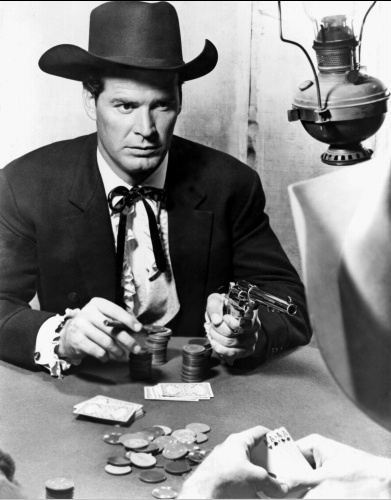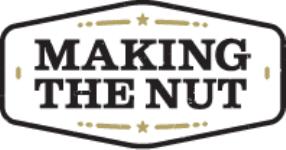Poker’s Black Friday: the US Bans Online poker
On Friday, 15 April, the US Department of Justice swooped. The three biggest online poker sites in the world – Fulltilt Poker, Pokerstars and Ultimate Bet, were closed to American players and their online accounts seized. In the Federal indictment, the DoJ alleged that these sites were in violation of the Unregulated Internet Gambling Enforcement Act (UIGEA), and conspired to launder money and commit wire fraud. American poker players have dubbed it ‘Black Friday’. This sobriquet is fair enough, as the impact on online poker will be devastating in the short to medium term. Millions of US players will lose their primary source of income, the major sites will lose half their player base, and those of us in the rest of the world will be playing with reduced tournament field sizes and guaranteed prizes.
One of the strangest things about all this is that poker, first and foremost, is an American game: it is as American as apple pie; it’s as American as Jazz music, as constitutionally enshrined freedoms, as morbid obesity. The country invented the game. It is embedded in the nation’s history –of smoke filled saloons awash with whisky and card games, of Wild Bill Hickok and the dead man’s hand, of river boat gamblers floating down the Mississippi. The love affair with poker goes right from the common man all the way to the top. The US has a proud history of presidents who played the game: Eisenhower was an avid player, Harry S Truman played as a judge in Missouri, and later as a Senator, Vice President and President – his poker table is now on display in Key West, Florida, where he and his buddies used to play on the presidential yacht. Warren Harding hosted games twice weekly at the White House, and John F Kennedy and Franklin D Roosevelt were also known to host last night games at the presidential residence. Nixon famously made enough money (8000 USD) playing poker while on a frigate returning from World War 2 to finance his first Congressional run in 1948. Obama was known for playing in weekly poker games with other legislators in Chicago.
So what the hell is going on? How can the online version of such a quintessentially American activity suddenly be made illegal in the good ‘ol US of A? Well, as apple pie is truly American, so is moral hypocrisy. The US DoJ is simply enforcing the UIEGA – a law impassable in normal circumstances, which was snuck as a ‘rider’ into anti-terrorist legislation (on port security) by corrupt Republican Senator Bill Frist. No, there is no link between poker and port security, but these additional ‘rider’ bills are a quirk of the US political system. Senator Frist is a guy who used campaign donations to invest (and lose) in the stock market. Political analysts speculate that this stock market gambler was trying to win votes with the Christian right by seeming to come down on internet gambling. The hypocrisy abounds. While Poker sites argue – correctly – that as poker is a game of skill the UIGEA doesn’t apply to them, this is now an issue that will need to be argued in court.
The charges faced by the poker sites are largely specious. While these sites have been accused of money laundering, the reality is quite different. We all know what money laundering usually looks like: crystal meth dealer puts his money into a legitimate business (restaurant, car wash, massage parlour – whatever) and it comes out ‘clean’: a credible and taxable source of income. For online poker the opposite happened, ‘clean’ money has been deposited by poker players into the sites, they played in clean games run by legitimate businesses, and won or lost money fair and square. The problem comes when they try to withdraw money. The UIGEA makes it a legal grey area (I stress that it is not clearly illegal in the case of poker) to transfer money from an online site, through a bank, back to the player. That is, if the poker site tried to provide prompt customer service when the player wants to withdraw money, the site is potentially in breach. So idiotic legislation put up by Republicans has had a reverse money laundering effect: money goes in clean; comes out dirty.
What does this mean for Australian players? I’ll deal with this question in detail in a subsequent article, but for the short term games will be easier online, as taking out US players has taken out all the best players in the world. While a lot of US players are donkeys, they also undoubtedly have the highest number of online pros. It means that there will there will be a reduced range of games to choose from online. It also means that live events will have reduced numbers – the World Series of Poker for example has thousands of entrants each year who have qualified through online satellites. All of this is bad for the game.
While these legal grey areas continue to exist in the US the game will suffer. Prohibition does not work of course, and it will only force players to seek out dodgier and dodgier online poker providers. What they need is regulation, and quickly; you’d think with the state of the US economy they’d be happy to tax the billions each year made by the poker sites. While things have got slightly brighter in the last 48 hours – DOJ looks like it will allow the indicted sites to cash-out all the US players – there is still a long way to go before this is resolved.
For Australia players, your money is safe at PokerStars and Fulltilt (Ultimate Bet is less certain and I’d suggest that you don’t deposit at this site – they are a company with a shady history and poor record, I just wouldn’t risk it). The games will be good for the next couple of months and there is no need to panic. True – The Australian newspaper recently published an article falsely claiming online poker was illegal in Australia. While Australia also has something of a ‘grey area’ around online poker, I feel the current government has too much on its plate and little appetite for further reforms, in particular in an area that is not a major public policy issue. In any case, the Australian Productivity Commission (which recommended the ‘pre-commitment’ cards for the pokies) recommended that online poker have all these legal grey areas removed and be fully regulated. The Commission made this recommendation as it found poker – of all forms of gaming – least susceptible to problem gambling. No surprise, given poker is a game of skill based on patience, mathematics, logic, game theory and human psychology. Not the first choice for someone with a gambling problem, and not the sort of pursuit that gives the same nihilistic rush as a poker machine or roulette wheel.
Putting all these current problems aside, I predict the long-term prospects for poker are very good. This draconian indictment by the DoJ will clear the way for proper regulation of online poker in the US. Certainly, Fulltilt and Pokerstars may not be allowed back into the American market, but should this be the case I suspect the major brick-and-mortar casinos like MGM and Harrah’s will step into the void and offer the online version as well. And when this does happen, poker will experience a boom at least as big as the explosion that occurred after Chris Moneymaker won the World Series in 2003.

